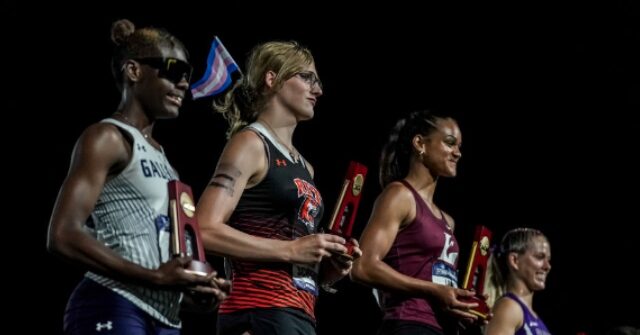Controversial Victory in Women’s 400-Meter Race Sparks Debate
A recent event at the USA Track and Field Open Masters Championships in Staten Island, New York, has ignited a heated discussion about fairness and inclusion in women’s sports. Camden Schreiner, a 21-year-old transgender male athlete who identifies as "Sadie," won the Women’s 400-meter dash open with a time of 56.74 seconds. This victory came after two teenage competitors, Anna Vidolova, 17, and Amaris Hiatt, 16, opted not to race against Schreiner, citing their absence as "Did Not Start" (DNS). The race results showed that Schreiner not only won the 400-meter event but also secured first place in the Women’s 200-meter dash open, competing against athletes aged 14, 15, 16, and 18. This double win has brought the issue of transgender participation in women’s sports into sharp focus.
USATF Policy and the Participation of Transgender Athletes
Under the current policy of USA Track & Field (USATF), transgender male athletes are permitted to compete in women’s categories if they comply with specific medical guidelines and International Olympic Committee (IOC) rules. These regulations require transgender athletes to meet certain criteria, such as maintaining testosterone levels below a specified threshold for a certain period. Schreiner’s participation and success in these events have raised questions about how these policies balance fairness for all athletes.
Background of Camden Schreiner and Their Athletic Career
Camden Schreiner, who identifies as "Sadie," gained attention during their time at the Rochester Institute of Technology (RIT), where they began competing in women’s events and reportedly broke multiple women’s records. However, Schreiner’s athletic career was halted when the National Collegiate Athletic Association (NCAA) banned biological males from participating in women’s sports in response to an executive order by President Donald Trump. The order, titled "Keeping Men Out of Women’s Sports," emphasized the importance of maintaining fairness, safety, and dignity in women’s athletics, and it threatened to withhold funding from educational programs that allowed biological males to compete in women’s categories.
Executive Order and Its Impact on Collegiate Athletics
President Trump’s executive order underscored the federal government’s stance on preserving women’s sports for biological females. The order stated that educational institutions violating this policy would face financial repercussions, highlighting the administration’s commitment to ensuring that women and girls have fair opportunities in athletics without facing competition from biological males. This policy shift was a direct response to the growing debate over the inclusion of transgender athletes in women’s sports and its potential impact on the fairness and integrity of competitions.
Reaction from Athletes and Advocacy Groups
The decision by Vidolova and Hiatt to withdraw from the race has been interpreted by some as a protest against the inclusion of transgender athletes in women’s sports, though the athletes themselves have not publicly stated their reasons. Advocacy groups for women’s sports have used this event to argue that biological males, even if they identify as transgender, have inherent physical advantages that make competition unfair. On the other hand, supporters of inclusion argue that transgender athletes should have the right to compete in categories that align with their gender identity, provided they meet established medical criteria. This tension between fairness and inclusion continues to divide opinions on the issue.
The Broader Implications for Women’s Sports and Inclusivity
The case of Camden Schreiner serves as a microcosm of a much larger debate about the future of women’s sports. Advocates for inclusivity emphasize the importance of respecting gender identity and creating opportunities for transgender athletes to compete. Conversely, those who prioritize fair competition argue that allowing biological males to participate in women’s categories undermines the progress made towards gender equality in sports. As this debate evolves, it is crucial to engage in open and respectful dialogue that considers the perspectives of all stakeholders involved, from athletes and coaches to policymakers and the broader community. The goal should be to find a balance that upholds both the principles of fairness and the rights of all athletes to participate in sports that align with their gender identity.


